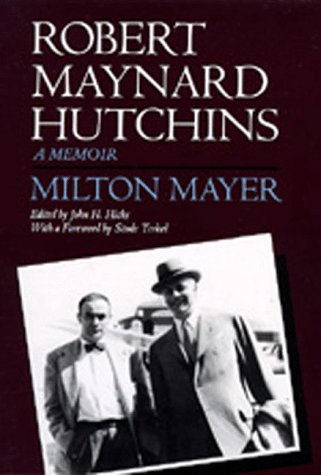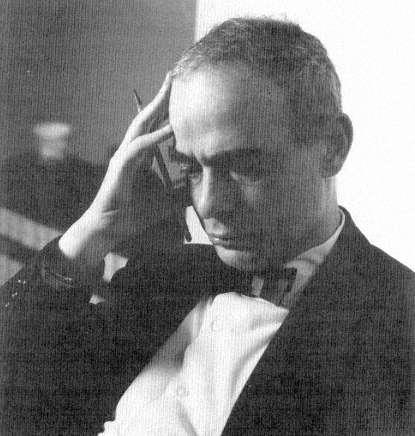
At age 28, he was dean of Yale Law School; at 30, president of the University of Chicago. By his mid-thirties, Robert Maynard Hutchins was an eminent figure in the world of educational innovation and liberal politics. And when he was 75, he told a friend, "I should have died at 35." Milton Mayer, Hutchins' colleague, and friend, gives an intimate picture of the remarkably outstanding, and fallible, man who participated in many of this century's most important social and political controversies. He captures the energy and intellectual fervor Hutchins could transmit to others, and which the man brought to the fields of law, politics, civil rights, and public affairs. Rich in detail and anecdote, this memoir vividly brings to life both a man and an age.
Author

Milton Sanford Mayer, a journalist and educator, was best known for his long-running column in The Progressive magazine, founded by Robert Marion LaFollette, Sr in Madison, Wisconsin. Mayer, raised a Reform Jew, was born in Chicago, the son of Morris Samuel Mayer and Louise (Gerson). He graduated from Englewood High School, where he received a classical education with an emphasis on Latin and languages. He studied at the University of Chicago from 1925 to 1928 but did not earn a degree; he told the Saturday Evening Post in 1942 that he was "placed on permanent probation in 1928 for throwing beer bottles out a dormitory window." He was a reporter for the Associated Press (1928-29), the Chicago Evening Post, and the Chicago Evening American. During his stint at the Post he married his first wife Bertha Tepper (the couple had two daughters). In 1945 they were divorced, and two years later Mayer married Jane Scully, whom he referred to as "Baby" in his magazine columns. At various times, he taught at the University of Chicago, the University of Massachusetts, and the University of Louisville, as well as universities abroad. He was also a consultant to the Center for the Study of Democratic Institutions. Mayer's most influential book was probably They Thought They Were Free: The Germans, 1933-45, a study of the lives of a group of ordinary Germans under the Third Reich, first published in 1955 by the University of Chicago Press. (Mayer became a member of the Religious Society of Friends or Quakers while he was researching this book in Germany in 1950; he did not reject his Jewish birth and heritage.) At various times, he taught at the University of Chicago, the University of Massachusetts, and the University of Louisville, as well as universities abroad. He was also a consultant to the Center for the Study of Democratic Institutions. Mayer is also the author of What Can a Man Do? (Univ. of Chicago Press) and is the co-author, with Mortimer Adler, of The Revolution in Education (Univ. of Chicago Press). Mayer died in 1986 in Carmel, California, where he and his second wife made their home. Milton had one brother, Howie Mayer, who was the Chicago journalist that broke the Leopold and Loeb case.